Genome-wide screening in pluripotent cells identifies Mtf1 as a suppressor of mutant huntingtin toxicity
- PMID: 37407555
- PMCID: PMC10322923
- DOI: 10.1038/s41467-023-39552-9
Genome-wide screening in pluripotent cells identifies Mtf1 as a suppressor of mutant huntingtin toxicity
Abstract
Huntington's disease (HD) is a neurodegenerative disorder caused by CAG-repeat expansions in the huntingtin (HTT) gene. The resulting mutant HTT (mHTT) protein induces toxicity and cell death via multiple mechanisms and no effective therapy is available. Here, we employ a genome-wide screening in pluripotent mouse embryonic stem cells (ESCs) to identify suppressors of mHTT toxicity. Among the identified suppressors, linked to HD-associated processes, we focus on Metal response element binding transcription factor 1 (Mtf1). Forced expression of Mtf1 counteracts cell death and oxidative stress caused by mHTT in mouse ESCs and in human neuronal precursor cells. In zebrafish, Mtf1 reduces malformations and apoptosis induced by mHTT. In R6/2 mice, Mtf1 ablates motor defects and reduces mHTT aggregates and oxidative stress. Our screening strategy enables a quick in vitro identification of promising suppressor genes and their validation in vivo, and it can be applied to other monogenic diseases.
© 2023. The Author(s).
Conflict of interest statement
G.M.F., A.M.G., M.Le. and G.M., files a patent application about the use of the suppressors identified in this study as therapeutic agents for polyQ diseases (Therapeutic factors for the treatment of PolyQ disease - Patent Application No. PCT/IB2023/051156 filed on 11 February 2022). Patent applicants are the institutions of Telethon Foundation, University of Padova and University of Wien. The remaining authors declare no competing interests.
Figures
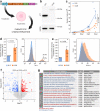
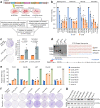

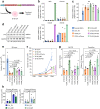
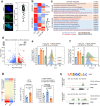

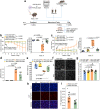
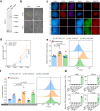
References
Publication types
MeSH terms
Substances
LinkOut - more resources
Full Text Sources
Medical
Molecular Biology Databases

